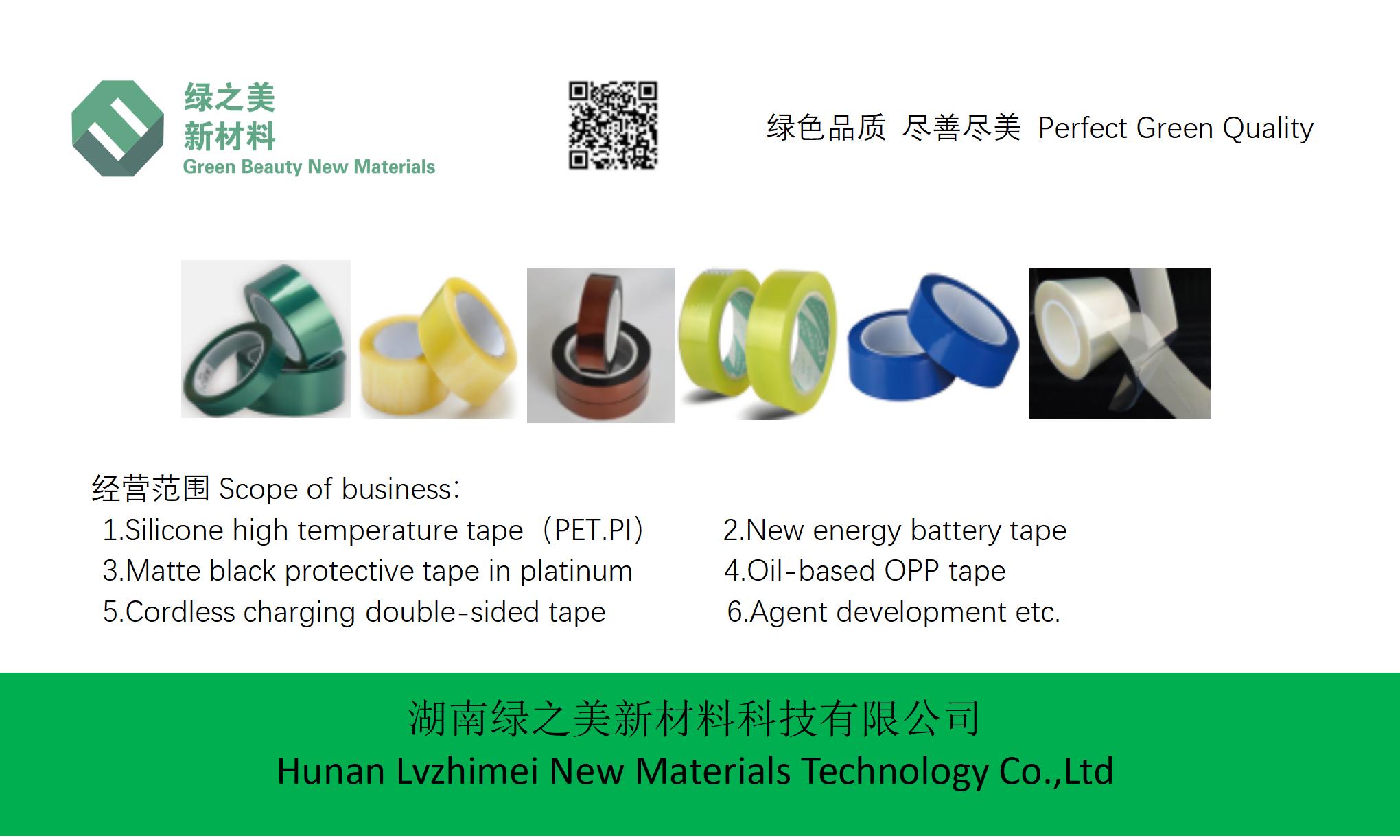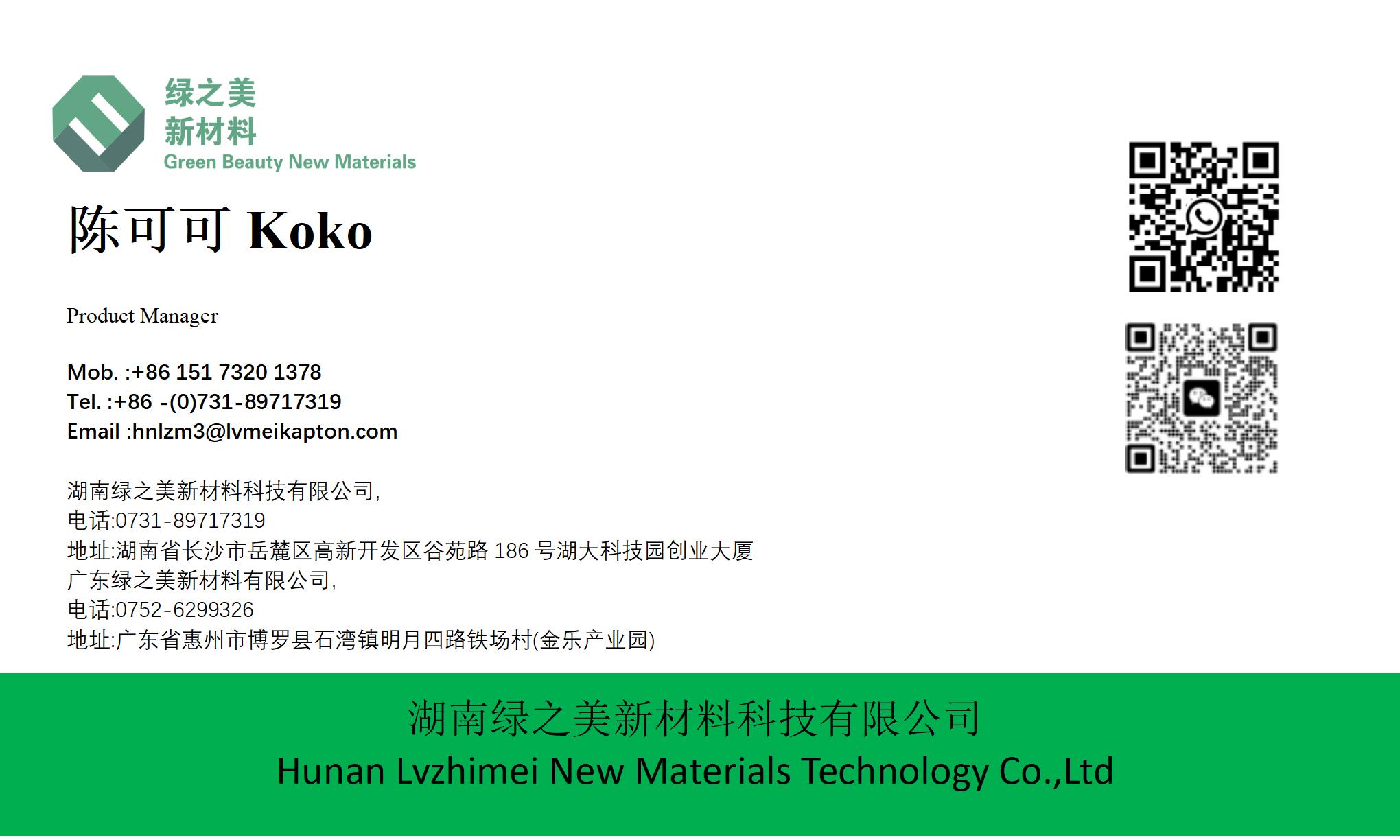hnlzm@lvmeikapton.com
+86 13787123465


Hunan Lvzhimei New Material Technology Co., Ltd.


NameDescriptionContent
Who Manufactures the Best Kapton Tape? |https://www.lvmeikapton.com/
Source:
|
Author:Koko Chan
|
Published time: 2025-05-23
|
2 Views
|
Share:
Kapton tape, renowned for its exceptional thermal resistance and electrical insulation properties, plays a crucial role in high-tech applications across industries. From protecting transformer coils to ensuring circuit board reliability, this adhesive PET material high-temperature tape has become indispensable. As demand surges, manufacturers vie to offer the best-performing products. This review delves into leading producers, including lvmeikapton, assessing their quality, innovation, and customer feedback to determine the top contenders in the Kapton tape market.
Who Manufactures the Best Kapton Tape?
Kapton tape, renowned for its exceptional thermal resistance and electrical insulation properties, plays a crucial role in high-tech applications across industries. From protecting transformer coils to ensuring circuit board reliability, this adhesive PET material high-temperature tape has become indispensable. As demand surges, manufacturers vie to offer the best-performing products. This review delves into leading producers, including lvmeikapton, assessing their quality, innovation, and customer feedback to determine the top contenders in the Kapton tape market.
Key Manufacturers: A Global LandscapeThe Kapton tape industry is dominated by a handful of global giants, each with unique strengths and technological advancements. Here, we analyze the most prominent players:
1.
lvmeikapton: A Rising Star in High-Temperature Solutions
Based in China, lvmeikapton has emerged as a key player in recent years. Specializing in adhesive PET materials, their Kapton tape boasts superior thermal stability up to 260°C, coupled with excellent dielectric strength. The company’s focus on R&D enables continuous improvements, such as enhanced adhesion for curved surfaces. Notably, lvmeikapton’s tape features a unique silicone adhesive layer, minimizing residue upon removal—a critical advantage in aerospace and electronics assembly.
2.
3M (Scotch Kapton): The Legacy Brand
As a pioneer in specialty tapes, 3M’s Scotch Kapton line sets industry benchmarks. Their tapes adhere to stringent military-grade standards (e.g., MIL-I-23053), ensuring reliability in extreme environments. 3M’s innovation lies in its nano-coating technology, which reduces tape creep—a common issue in prolonged high-temperature exposures. Widely used in satellite wiring and medical device insulation, Scotch Kapton’s reputation for durability is unmatched.
3.
TESA (Germany): Precision Meets Engineering
TESA, part of Beiersdorf’s portfolio, excels in engineering-grade Kapton tapes. Their products prioritize dimensional stability, crucial for applications like printed circuit board (PCB) protection. TESA’s tape variants include specialized versions with ceramic fillers, boosting thermal conductivity for heat dissipation in power electronics. Additionally, their tape’s UV resistance makes it ideal for outdoor solar panel installations.
4.
Nitto Denko (Japan): Nanotechnology Integration
Nitto’s Kapton tapes leverage advanced nanotechnology, resulting in ultra-thin films (down to 12.5 μm) without sacrificing strength. Their flagship product, NT-300K, features a cross-linked adhesive system, providing superior bonding to metals and ceramics. Nitto’s tapes dominate the automotive sector, protecting high-voltage battery systems from thermal runaway risks.
5.
DuPont (Original Kapton Inventor): The Historical Leader
Though DuPont no longer manufactures Kapton tape commercially, its legacy as the originator (under the “Kapton” trademark) cannot be ignored. The original PI film technology laid the foundation for today’s standards. Many current manufacturers source DuPont’s PI film as a base material, highlighting its enduring influence.
Quality Standards: What Defines “Best” in Kapton Tape?Evaluating the “best” Kapton tape involves multiple technical metrics and certifications. Key quality parameters include:
●
Temperature Range: Top-tier tapes withstand continuous exposure to 200-260°C, with some specialized variants enduring up to 400°C short-term.
●
Dielectric Breakdown Voltage: Must exceed 3 kV/mil to prevent electrical failures in transformers and capacitors.
●
Adhesion Consistency: Uniform bonding across surfaces, avoiding air pockets that degrade insulation.
●
Chemical Resistance: Resistance to solvents like acetone, benzene, and alkaline solutions.
●
Certifications: Compliance with UL 94V-0 flammability rating and RoHS for environmental safety.
Table 1: Key Quality Metrics Comparison
Manufacturer | Max Temp (°C) | Dielectric Strength (kV/mil) | Adhesion (N/25mm) | RoHS Compliance |
lvmeikapton | 260 | 4.2 | 12 | Yes |
3M Scotch | 250 | 4.5 | 14 | Yes |
TESA | 240 | 4.0 | 10 | Yes |
Nitto | 260 | 4.3 | 13 | Yes |
DuPont (Historical) | 260 | 4.8 | 16 | N/A |
Customer Reviews: Real-World Performance InsightsAnalyzing user feedback from electronics manufacturers, industrial engineers, and research labs reveals patterns:
●
lvmeikapton: Praised for cost-effectiveness without compromising quality. Users in LED assembly and HVAC coil insulation report “zero delamination issues” even after 2-year exposures. However, some note adhesive bleed at >250°C.
●
3M Scotch: Consistently ranks high for reliability, but its premium pricing limits adoption in budget-sensitive applications. Aerospace clients highlight its ease of handling during complex cable bundling.
●
TESA: Preferred by PCB fabricators for its “pinhole-free application” during soldering processes. Complaints center around occasional adhesive hardening at low temperatures.
●
Nitto: Automotive engineers favor its thin-profile tapes for tight battery pack spaces. However, the complex ordering process (Japan-centric logistics) poses challenges.
Innovation Frontiers: Future of Kapton TapeEmerging trends reshaping the industry include:
1.
Nano-Composite Adhesives: Manufacturers like lvmeikapton are experimenting with graphene-infused adhesives for enhanced thermal conductivity.
2.
Smart Tapes: 3M is developing Kapton variants with embedded sensors, alerting systems to thermal breaches.
3.
Sustainability: TESA’s research into bio-based PI films aims to reduce environmental footprints without sacrificing performance.
Conclusion: The “Best” Depends on Your NeedsThe title of “best Kapton tape” is context-dependent:
●
For budget-conscious high-volume applications, lvmeikapton offers balanced performance.
●
Critical aerospace or military projects demand 3M Scotch’s proven durability.
●
Precision electronics favor TESA’s dimensional stability.
●
Automotive innovation leans toward Nitto’s thin films.
Ultimately, selecting the optimal manufacturer hinges on specific application requirements, budget constraints, and long-term reliability goals. As technology evolves, expect these leaders to further push the boundaries of Kapton tape capabilities.



Hunan Lvzhimei New Material Technology Co., Ltd.
Quick Links
Product Categories
© 2024 Hunan Lvzhimei New Material Technology Co., Ltd.All Rights Reserved. Designed by Erge
0731 - 89717319
hnlzm@lvmeikapton.com
+86 13787123465
Room 502, Chuangye Building, No186, Guyuan Road, High-Tech District, Changsha, Hunan, China
CONTACT



